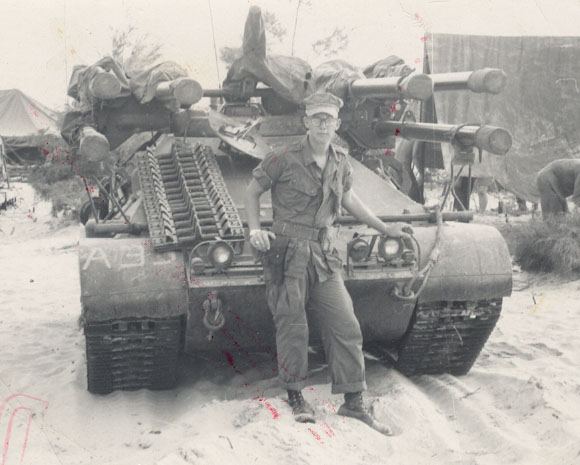
|
|
| Home
Page
|
|
 |
Project Surveys are available using the following Survey Monkey links:
Concept
Significant numbers of Wisconsin business employees have now served in Operation Iraqi Freedom and Operation Enduring Freedom.
Supposition: Understanding how significant this service experience is on themselves and their workplaces directly impacts effective business operations.
Of critical importance is that the Iraq War is the first modern era, major conflict fought by the United States in which the draft has not been employed. For the National Guard this deployment is unusual. Many units have not been deployed since WWII (Buchholz, p. 2). The wide use of the reserve component of the armed forces of the United States is a “shift in national thinking” that redefines the reserve from a strategic reserve housed in the Continental United States to an “operationally ready and relevant force” (Buchholz, p. 2) to be deployed, as active soldiers, around the world.
Since the draft was eliminated in 1973, today’s regular military personnel are volunteers; they know they may be called to active duty. In contrast, for National Guard members, activation is involuntary (Buchholz, p. 5). Mobilization pulls them from their careers, employers and families from 7 to 18 months depending on branch of service. This activation is also unique because a significant number of these service members come from the same community. They are sent overseas and return home as a unit. This decision to pull people from their communities can have significant economic impact. Deployment has also become recurring. Some veterans who hold critical Military Occupation Specialties (MOS) have been deployed more than once in a four year period. All these individuals leave their work and return after their tours of duty with changed insights and views of life (Buchholz, p. 162).
The Department of Defense works to support deployments through the Employer Support of the Guard and Reserve (ESGR). On its web page (http://www.esgr.net/about.asp) the DOD helps to “Gain and maintain active support from all public and private employers for the men and women of the National Guard and Reserve” (Mission Statement). Generally, the ESGR seeks to make it easy for reservists to serve and employers to support their service. Fortunately, I am pleased to report that the Wisconsin ESGR is enthusiastically supportive of my research effort to help both employers and reservists utilize the deployment experience in support of organizational effectiveness.
I believe that the utilization of military service experience represents a rich depository of knowledge on Management and Leadership. My belief is grounded on my service, study of related literature and the many conversations I have had with business students at Cardinal Stritch. The catalyst that motivated me to pursue investigation of the relationships between the deployment experience and the work experience occurred as I was listening to the radio. It was a comment from new boss on being introduced to Iraq veteran (as represented by National Public Radio 11/11/2007 Veterans Day) – “I heard you just came back from Iraq! I don’t want to hear about it! I am a pacifist!”
Stating the Obvious
My reaction to this statement was that it was both short sighted, uninformed and defined, on the part of the clueless “boss”, a limited view of how military service CHANGES US. I contend that how we utilize the changed employee directly affects the “bottom line”!
My experience in the classroom and preliminary data indicates that significant numbers of enlisted veterans have or are pursuing degrees in business and are managers in firms they work for. Considerable numbers of officers (with college degrees) are corporate managers and take up their management jobs upon return from deployment. I also believe that both enlisted and officer women and men possess insights into human behavior unique to their deployment experience. They have been challenged to think differently. They have been forced to confront their own personal strengths and weaknesses in ways that their civilian world employment would never have challenged them. Most importantly I believe that understanding the nature of insight depth and breadth will yield revised management and leadership processes which should directly affect the organizational bottom line.
Program
Through the use of varied research techniques; I am working to answer the following research questions:
The individuals I wish to talk to are:
I believe that the benefits of this study are:
Plan of Action
Both Project Surveys are available using the following Survey Monkey links:
A definition of learning as it pertains to organizations is included on this website.
If there are any questions on either Survey I can be contacted at either:
or
The Funding Proposal link below reconstitutes this page into the document I am using to approach varied funding sources. If there are any question please feel free to contact me.
Current Newspaper Articles on the Veterans Research Project. Listed as I am able to post the Links.
http://www.myfoxpointnow.com/story/index.aspx?id=737070
http://www.stritch.edu/Content.aspx?id=2012&linkidentifier=id&itemid=2012
References
Buchholz, B. (2007). Private soldiers: A year in Iraq with a Wisconsin National Guard unit. Madison, WI: State Historical Society of Wisconsin.
Department of Defense. (2007). Employer support of the guard and reserve. Web site address http://www.esgr.net/about.asp. Acquired November 18, 2007.